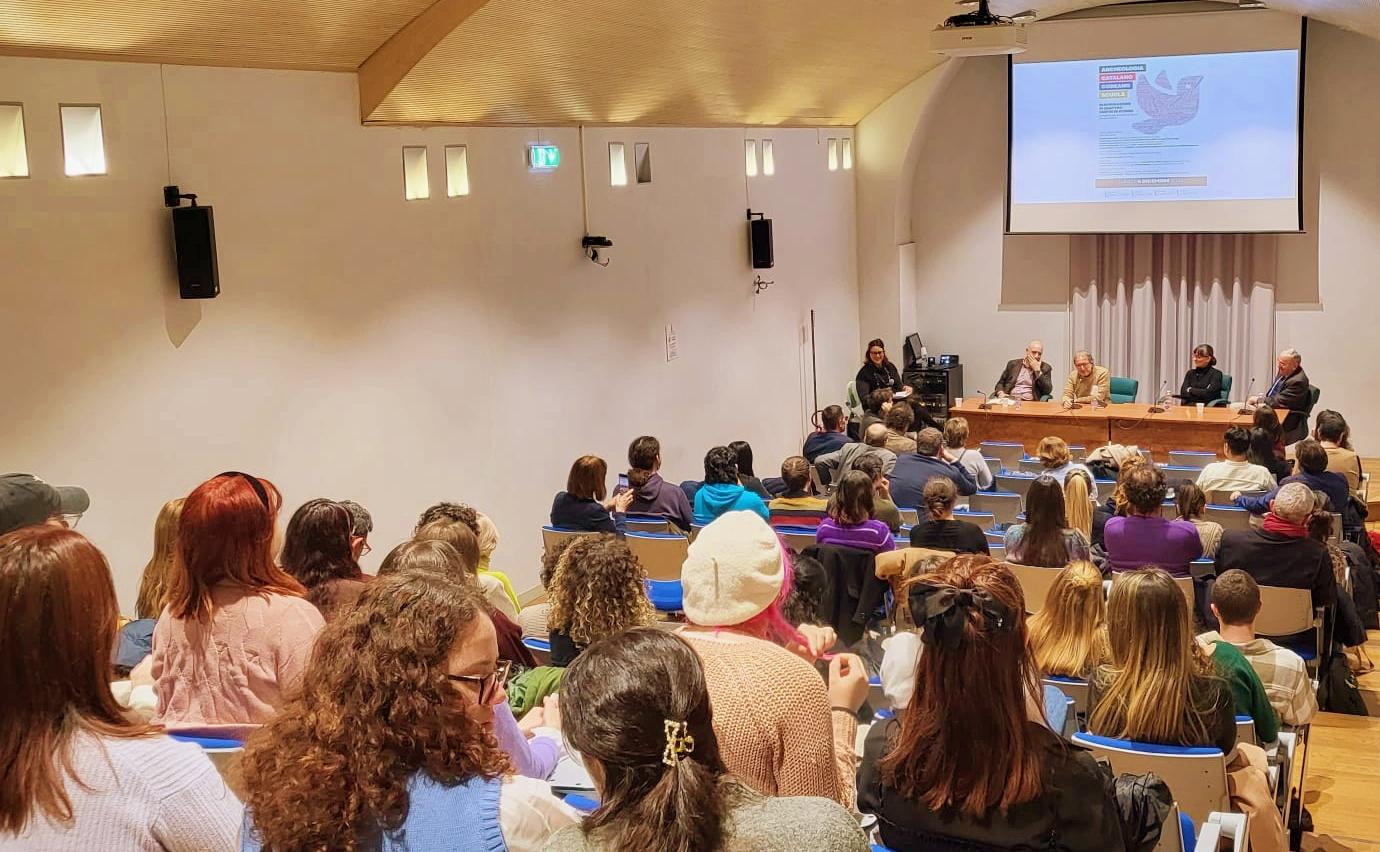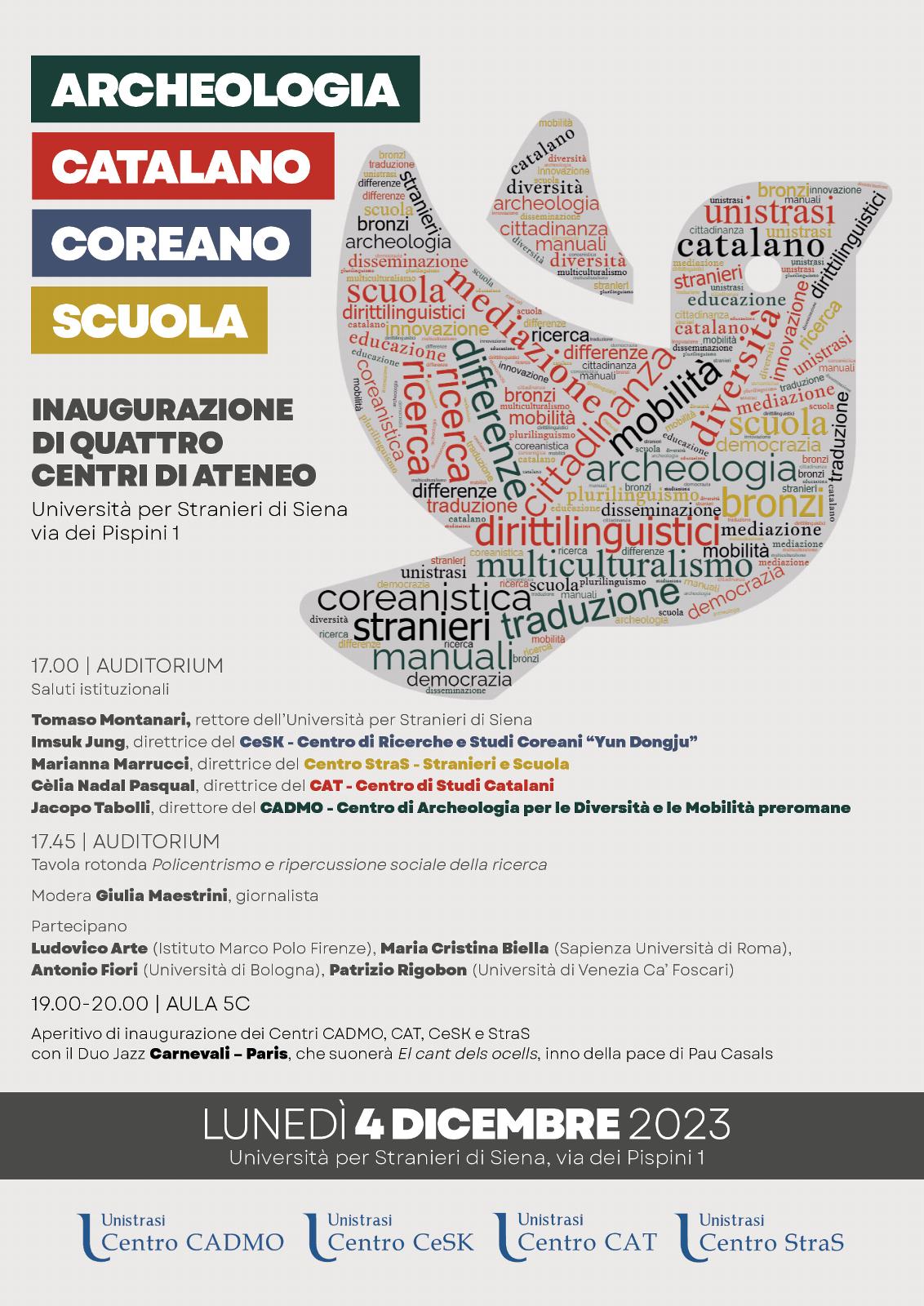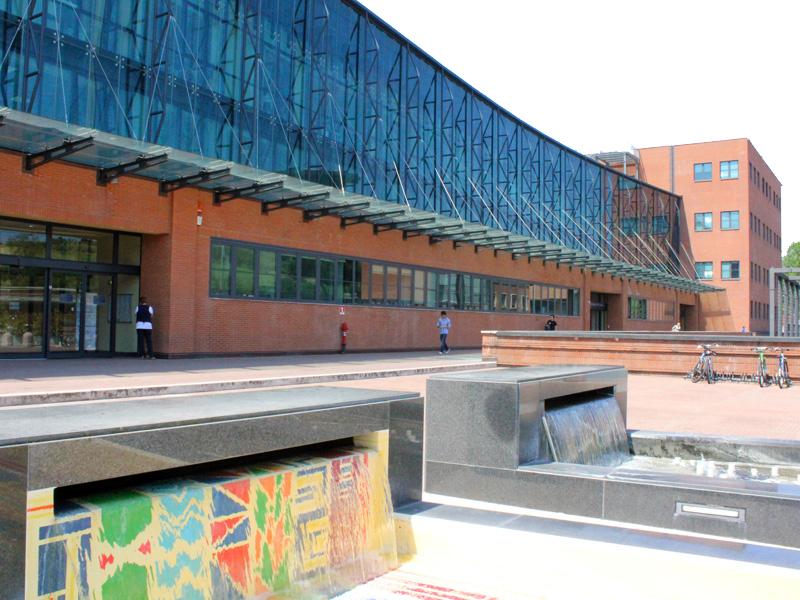The new Centre for Catalan Studies (CAT) will be formally inaugurated on 4 December, although it has been up and running since the spring. It represents an important step forward in the collaboration initiated in 2015 between the University for Foreigners of Siena (Unistrasi) and the Institut Ramon Llull, aimed at consolidating Catalan studies in Tuscany and Italy as a whole, and at cultivating cultural exchange.
The CAT is chiefly focused on Catalan studies, approached from different disciplinary and methodological perspectives. Its main activities are the production of research, the hosting of researchers (research stays) and the establishment and strengthening of links between researchers of Catalan studies from several disciplines, in particular promoting the translation of Catalan literature, especially Catalan classics. At the same time, the centre’s mission is to be at the heart of disseminating Catalan studies and knowledge of Catalan culture, both at the university and in Italy as a whole.
The CAT also fulfils one of the missions of the Unistrasis, namely the study and enhancement of multilingualism and multiculturalism, facilitating the knowledge of a language and a culture that have historically had minority status – often suffering persecution – and that are yet to be properly acknowledged by the Italian university system and its institutions.
The Unistrasi has recently opened three other centres: the CADMO, dedicated to archaeology, the StraS, dedicated to the compulsory training of schoolteachers, and the CeSK, dedicated to Korean studies. The four centres will be officially opened together in a ceremony on 4 December, held in the auditorium of the Unistrasi building on Via Pispini. Following opening remarks by the rector of the Unistrasi, Tomaso Montanari, and the directors of the new centres – including the director of the CAT, Cèlia Nadal –, there will be a round-table discussion on the role of universities in creating knowledge and transferring it to society, in which each centre will be represented by an expert. The CAT will be represented by Patrizio Rigobon, who teaches at the Ca’ Foscari University of Venice. The event will conclude with a performance of El cant dels ocells (Song of the Birds) by the Carnevali – Paris jazz duo.
The CAT in Siena is the fourth centre with which the Institut Ramon Llull collaborates in promoting and consolidating advanced research in Catalan studies, the other three being the Centre for Catalan Studies of the Sorbonne University in Paris, the Centre for Catalan Studies of Queen Mary University of London and the Centre for Catalan Studies of the Adam Mickiewicz University in Poznań.
Staying with Italy, the Annual Symposium of the Italian Association for Catalan Studies (AISC) will be held in Naples on 11 and 12 December, under the title Traduzioni e genealogie. Letteratura catalana e italiana in prospettiva comparata (Translations and Genealogies. Catalan and Italian Literature in Comparative Perspective). Bringing together specialists from universities both within and beyond Catalan-speaking areas, the symposium will analyse the connections and contrasts between the Catalan and Italian literary worlds, and the importance of translation as a vehicle for exchange and dialogue between the two cultures. Tracing a literary path from the Middle Ages through the centuries – Isabel de Villena, Isotta Nogarola, Dante Alighieri, Àngel Guimerà… – parallels will be drawn between the creative universes of the great writers of Italian and Catalan literature, such as Natalia Ginzburg, Mercè Rodoreda, Eva Baltasar, Mariolina Venezia, Josep Pla, Vicent Andrés Estellés and Giuseppe Ungaretti, among others.
Performance in presa diretta con il duo jazz Federico Carnevali e Pietro Paris con la chitarra Mare di Mezzo Session registrata al lago di Bolsena (VT) per ...
[DE2]Sobre el tàndem Dante - Guimerà (se suposa que hi ha un paral·lelisme entre ambdós), podria estar relacionat amb la possible influència que va tenir l'obra de Dante en la literatura catalana de l'època de Guimerà? No ho sé, no l'he pogut documentar.
Per altra banda, l'estructura "passant per", gairebé mai no es pot traduir literalment en anglès.
És per aquestes raons que ho he expressat així.









